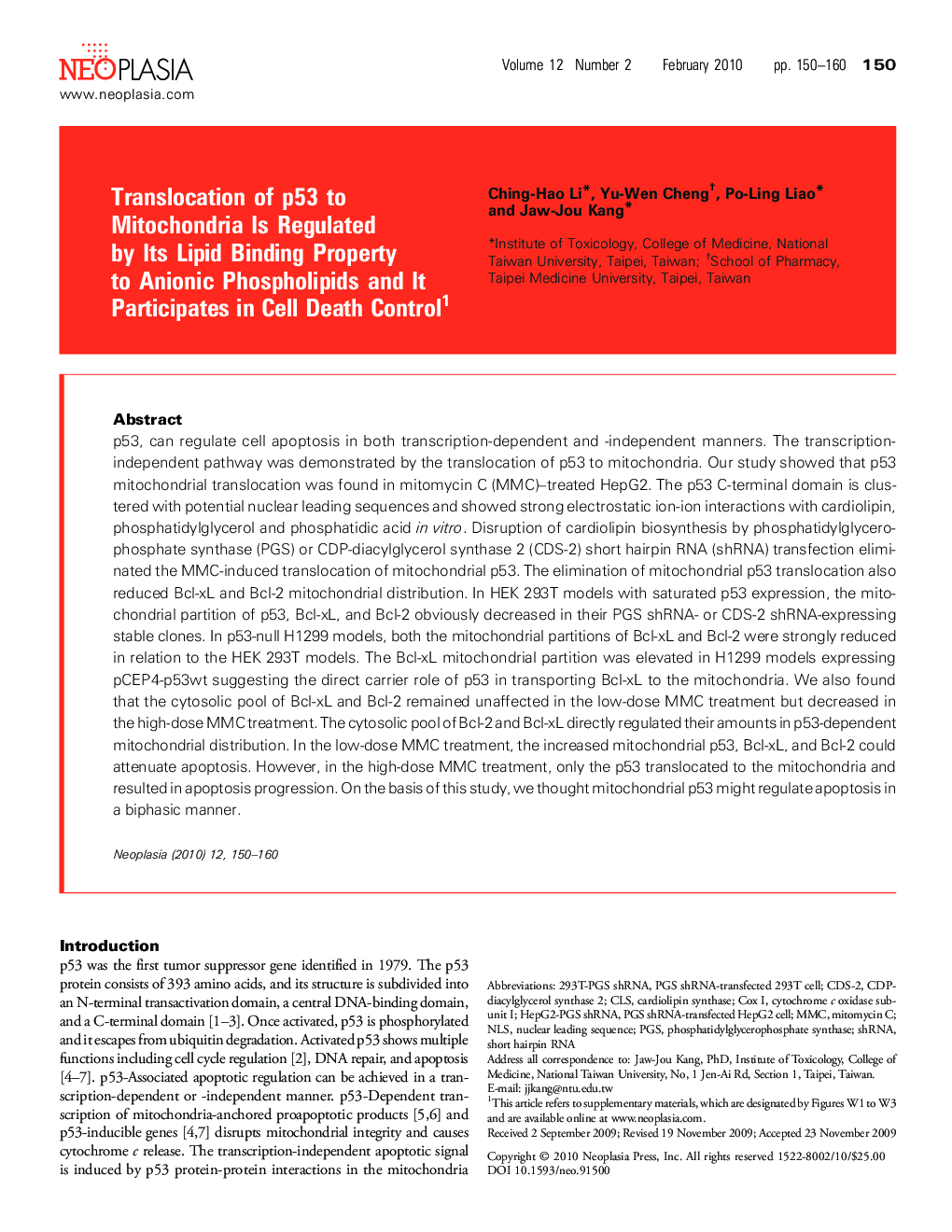| Article ID | Journal | Published Year | Pages | File Type |
|---|---|---|---|---|
| 2151643 | Neoplasia | 2010 | 15 Pages |
Abstract
p53, can regulate cell apoptosis in both transcription-dependent and -independent manners. The transcription-independent pathway was demonstrated by the translocation of p53 to mitochondria. Our study showed that p53 mitochondrial translocation was found in mitomycin C (MMC)-treated HepG2. The p53 C-terminal domain is clustered with potential nuclear leading sequences and showed strong electrostatic ion-ion interactions with cardiolipin, phosphatidylglycerol and phosphatidic acid in vitro. Disruption of cardiolipin biosynthesis by phosphatidylglycero-phosphate synthase (PGS) or CDP-diacylglycerol synthase 2 (CDS-2) short hairpin RNA (shRNA) transfection eliminated the MMC-induced translocation of mitochondrial p53. The elimination of mitochondrial p53 translocation also reduced Bcl-xL and Bcl-2 mitochondrial distribution. In HEK 293T models with saturated p53 expression, the mitochondrial partition of p53, Bcl-xL, and Bcl-2 obviously decreased in their PGS shRNA- or CDS-2 shRNA-expressing stable clones. In p53-null H1299 models, both the mitochondrial partitions of Bcl-xL and Bcl-2 were strongly reduced in relation to the HEK 293T models. The Bcl-xL mitochondrial partition was elevated in H1299 models expressing pCEP4-p53wt suggesting the direct carrier role of p53 in transporting Bcl-xL to the mitochondria. We also found that the cytosolic pool of Bcl-xL and Bcl-2 remained unaffected in the low-dose MMC treatment but decreased in the high-dose MMC treatment. The cytosolic pool of Bcl-2 and Bcl-xL directly regulated their amounts in p53-dependent mitochondrial distribution. In the low-dose MMC treatment, the increased mitochondrial p53, Bcl-xL, and Bcl-2 could attenuate apoptosis. However, in the high-dose MMC treatment, only the p53 translocated to the mitochondria and resulted in apoptosis progression. On the basis of this study, we thought mitochondrial p53 might regulate apoptosis in a biphasic manner.
Keywords
Related Topics
Life Sciences
Biochemistry, Genetics and Molecular Biology
Cancer Research
Authors
Ching-Hao Li, Yu-Wen Cheng, Po-Ling Liao, Jaw-Jou Kang,
